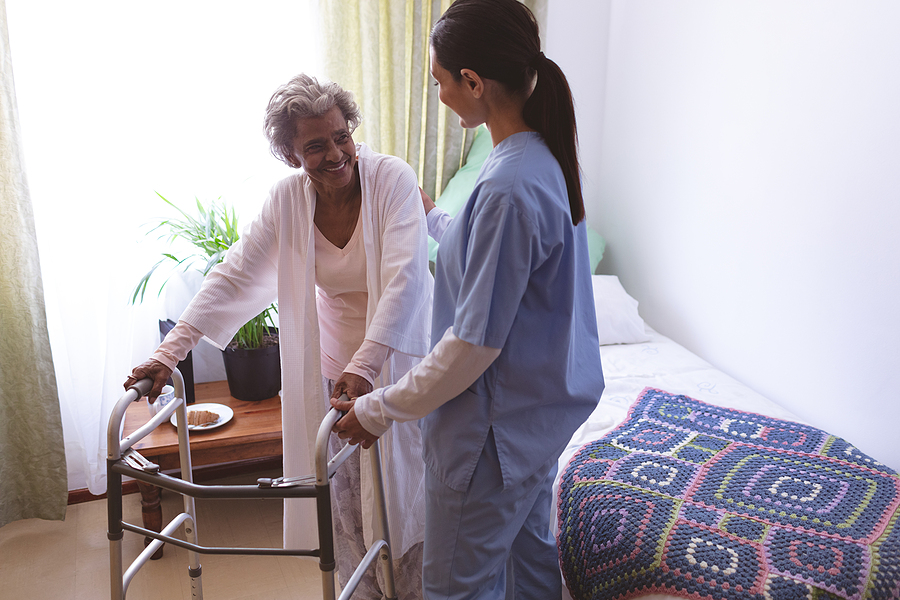Five Ways Occupational Therapy Can Help Seniors

Occupational Therapy in Culpeper County VA
You may not realize that having occupational therapy come to your loved one’s home may help her remain independent, even if she is struggling with everyday tasks.
Many people don’t know that one of the main purposes of occupational therapy is to assist people of all ages to recover and rediscover techniques needed for daily living. The therapist will work directly with your elderly loved one to find solutions that are appropriate for her in her current living environment. Therapists will also work with other family caregivers to teach them how to support their loved ones.
Why Would Your Loved One Need Occupational Therapy?
You might think occupational therapy just comes into vision after an injury or surgery, and while it can help greatly after major life events like those, occupational therapy can be used at any time you might notice your elderly loved one struggling physically to perform a particular task that she needs to do as a part of her daily living.
If your loved one is struggling with any issues in her home, an occupational therapist can come to her home and help her find solutions that will enrich her life and help her maintain her independence.
Five Areas Occupational Therapy Can Help with
- Fall Prevention. An occupational therapist can help your loved one review her living environment (whether she lives alone or with a family member) to make sure her home is designed to reduce the risk of falls. The therapist can also teach your loved one exercises that will help her maintain her balance.
- Personal Grooming Activities. Many seniors become embarrassed and don’t want to admit that they are having trouble with personal care activities such as brushing their teeth, clipping their nails, or getting in and out of the bathtub. An occupational therapist provides a safe person to talk to about personal care struggles who will then help her develop new techniques to perform certain tasks as well as recommend certain assistive devices that can make those activities easier for her.
- Vision Loss. If your loved one’s vision isn’t what it used to be and she struggles to perform some home tasks because it is low, her occupational therapist can lead activities to help improve perceptual vision, pattern detection, and overall visual awareness. Her therapist may also suggest changes in the home to make sure vision loss does not create barriers in your loved one’s everyday activities.
- Memory Loss. If your loved one struggles to remember important dates, events, or appointments, an occupational therapist can help her utilize memory helpers to keep her on track with what needs to be done and when. From simple things like a calendar or pill dispenser to programming alarms or reminders on her phone, occupational therapy can help your loved one remember those important tasks.
- Improving Self-Esteem. Many elderly people become frustrated with themselves and their inability to perform certain tasks like they used to. An occupational therapist can remind them that they are still able to do many things, they just need to learn a new way to do them. This gives your loved one an improved outlook and a renewed sense of confidence that she can manage these changes as they come.
If you or an aging loved one are considering occupational therapy in Culpeper County, VA, please contact the caring staff at LivinRite Home Care. Serving Northern Virginia, The Valley, and Surrounding Communities – call us today at (703) 369-6677.
- Five Ways Occupational Therapy Can Help Seniors - April 25, 2025
- Skilled Nursing: Offering Peace of Mind for Seniors Aging in Place - April 8, 2025
- Can Physical Therapy Help Seniors Learn How to Fall Safely? - March 27, 2025
